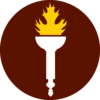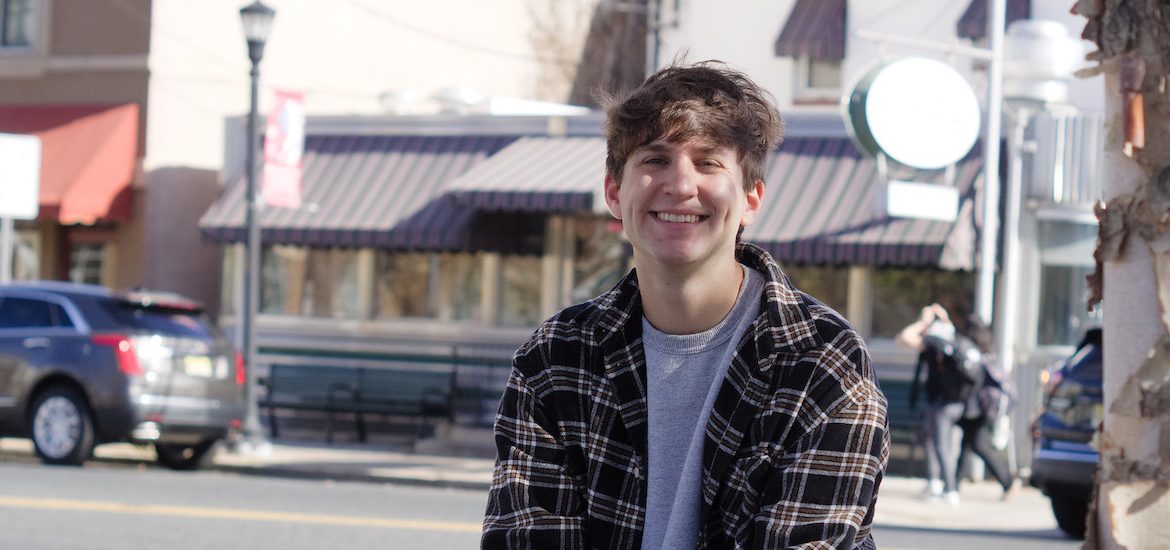Today we feature senior Jonathan Hansel (he/him) from Burlington County. Jon is majoring in Community and Environmental Planning and pursuing a master’s in Urban and Regional Planning through Rowan’s 4+1 program. Here, he discusses the importance of planning, his personal aspirations, and the opportunities he’s found in the program.
Could you tell us a little about what Community and Environmental Planning is?
So it’s kind of a broad field, and there’s a lot of different aspects to it, but I would say there’s a unifying principle of analyzing the systems that comprise the built environment, like transportation, housing, and urban design, so they can be improved for people in the future looking forward.
Planning is really thinking holistically, so you can make changes to your community for the better.
Why is planning an important field?
It’s definitely important that someone is guiding development, and that it’s not some sort of … arbitrary calculation, I guess. It’s important that you have people who are representing the public and shaping the community for them, because that’s ultimately what urban planning is about.
What are your personal aspirations in planning?
I have really been interested in the analysis of the built environment and seeing how things work. And that was really my main interest — I wasn’t always a fan of where I grew up and the way things were laid out. Even before I knew what urban planning was, I remember I would be like “I hate the way the street is designed. I truly dislike it!” So I think I’ve always had that a little bit in me.
I think it’s cool to be able to learn the actual steps that you could take to change things. And then looking towards a career, there’s a lot of different opportunities, but I personally would love a public job working for the government. I’m still not entirely sure where. I think the Delaware Valley Regional Planning Commission is really cool, or working for the state.
And I didn’t mention this before, but right now, there’s actually a really big need for planners — there’s kind of a shortage in the state. So there’s truly a lot of opportunities.
What are your classes like?
Basically, we do a lot of discussing the history and theory of urban planning. It’s not a super old field, so there’s not a crazy amount of history. So learning [from the] 1900s onward. And then you’re really understanding and getting into how land use works, how the law works in terms of municipalities and how they control [and] shape their towns, learning a lot about regulations and federal policies, and that sort of thing.
One of the big things we do is analyzing even just a place like this [Glassboro Town Square] and thinking, “How are people using it? How can it be made better?”
I would say [there’s] a lot of analysis and thinking critically about things.
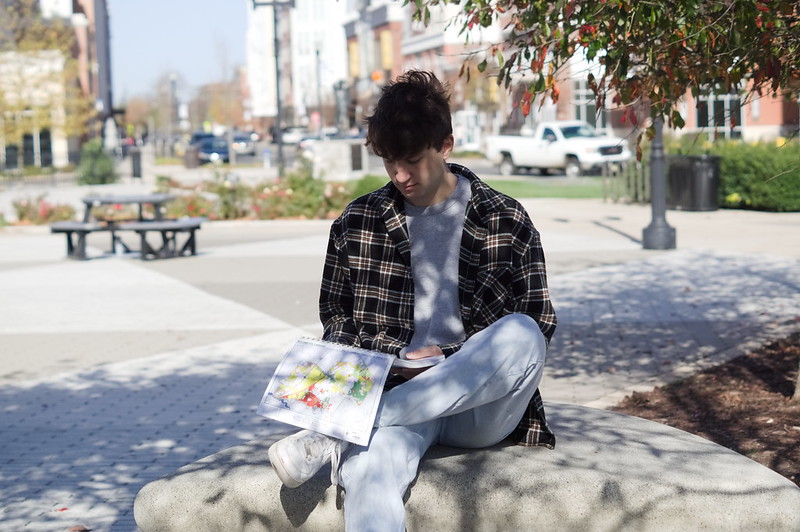
How does it differ from, say, engineering?
Yeah, engineering is definitely a lot more technical. So you’re thinking about, “How do we construct this bridge and make it structurally sound and stable?” And planners are more thinking, “How will this project impact the people who live in the community?” And looking a little more holistically at things, whereas engineers can have a little bit more limited focus.
Is VR ever part of that analysis?
Yeah, VR is definitely a really interesting and unique emerging technology. I would say it’ll be best used in being able to see and visualize development so you can see the before of a project and the after. And you can physically be there, it’s not just a 2D representation. I think it’ll be important going forward, being able to, if there’s investment in it, being able to really have the community understand how a project will impact their community.
We just started getting into it with my professor, Dr. Meenar. So we’ve been doing some of the exploratory work like figuring out how it works, seeing how we could utilize it going forward. And so hopefully, in the future, it’ll be more integrated into classes and people will be able to work with it.
What drew you to the planning field?
I definitely did not know about urban planning before college. What really got me interested in it was honestly, like, the internet. Just watching videos on YouTube about it. There was a bit of a resurgence in urban planning online. So that’s how I found it.
And then I was really drawn to it because it kind of was a combination of a lot of things I was interested in. There’s a lot of history, we talked about philosophy, politics — it’s kind of a convergence of a lot of different fields.
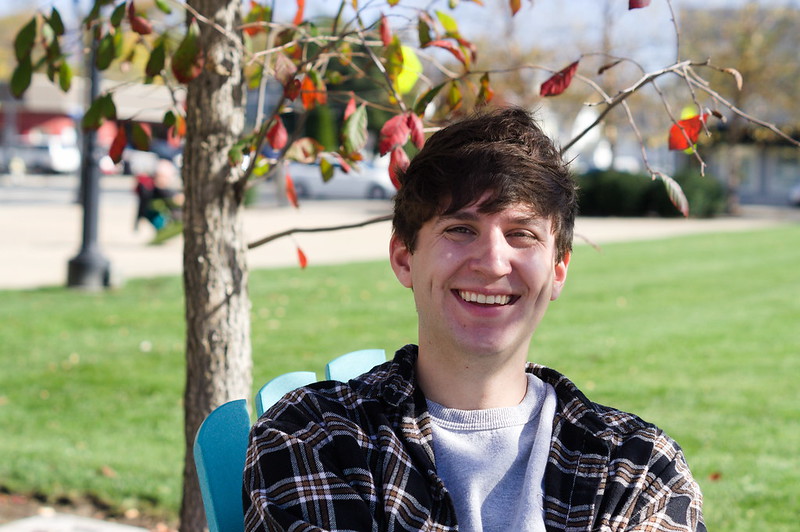
What kind of job opportunities are there after you graduate?
There’s a lot of different avenues you can go towards as a planner. You don’t necessarily even have to strictly be a planner — there’s the government role that you can go into, you can work for a local municipality, you can work for a huge city if you have the credentials for that. And there’s lots of regional planning organizations you can join here like in Gloucester County, the Delaware Valley Regional Planning Commission. They’re the ones who do regional planning in this area.
There’s also a lot of private opportunities that you can go into — you can work for engineering firms, you can have your own private practice and advocate for projects at planning board meetings and zoning meetings. There’s really a lot that you can spin it into.
Could you tell us about the event your class recently held?
We had an event called World Town Planning Day. It was the first time we put it on. Our class planned it with Dr. Meenar. For us, it’s kind of just about having more events for the program and being able to have more people know about us. Obviously, we’re slightly more niche than some of the more popular ones [majors], so I think it was important in just spreading the word a little bit.
And then we had a fun Lego activity to kind of help people, in a not super-complicated way, understand that there’s differences in the purposes of buildings, and that depending on those differences, you have to think [about] where they’re going to be located. You don’t want an industrial factory next to a school — that wouldn’t be great.
What kinds of opportunities have you experienced in the major?
If you’re eager to pursue extra things just outside of the typical course load, there’s a lot of opportunities. Dr. Hasse runs a program called NJ Map, which has actually won some awards because it’s so important for New Jersey. He compiles a lot of data regarding land use and the environment, and it’s been really helpful for planners. And even in non-planning spheres, it’s a very cool project that you can even check out online if you want.
Also, you can work doing research; Dr. Meenar has a lot of interesting projects and studies he’s working on, so as a student, you can get involved with that. There’s also clubs you can join. We have the Rowan University Student Planning Organization, and we do a lot of trips and fun activities related to planning. So there’s a lot that you can get involved with in the major.
Do you look at the world around you differently as a result of your studies?
Oh, absolutely. It’s really interesting, especially if you’re in an area where there’s a lot of people, you can really learn a lot about a space just by seeing the way people are moving, where they’re lingering, where they feel comfortable talking, sitting, doing literally anything. It’s very interesting. The way the sun impacts where people will sit — you know, if there’s shade, you can literally see, spatially, people almost always gravitate towards a certain location. So yeah, I would say that is one of the fundamental things that I’ve taken out of this is. I really do look at the way people interact with space a lot differently now.
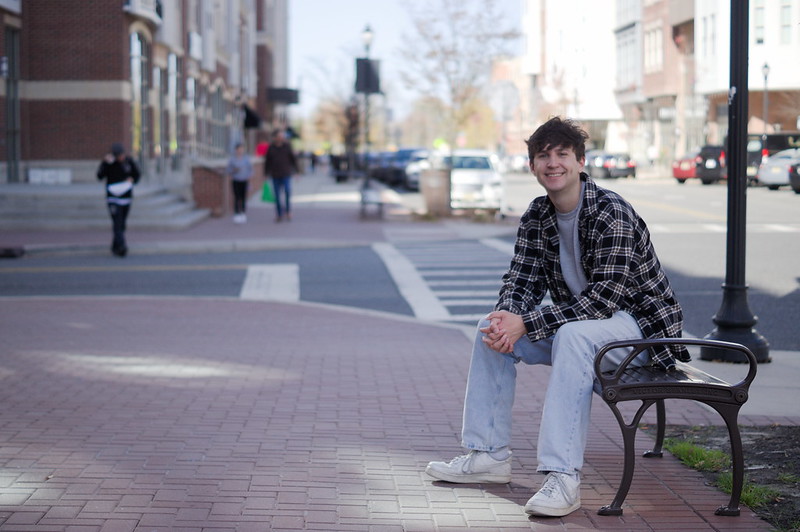
Would you say that Rowan has prepared you for that next step outside of college?
Yeah, I would definitely say so. There’s really a good strong foundation, I would say. It can be hard to really get into the nitty gritty of a specific subject, because planning is so broad, but I would say that there’s definitely been a really strong base to launch yourself off of and find a job later on.
How can we get more people interested in urban planning?
So in terms of getting people interested in urban planning, I think it’s really just a matter of public outreach. I don’t think a lot of people know it’s an option. So I think that for us, I mean, even just something like this, having a video talking about it, is good.
Is community involvement important to the field of Urban Planning?
Community participation is a huge, huge, huge part of our major. In the past, urban planners definitely ran cities a little more, maybe some would say, like a dictatorship. But now, especially, we talk about community participation all the time. It’s pretty much fundamental to anything you’re doing as a planner. Your role with the public [is] doing outreach, holding town meetings, doing surveys, getting feedback from your community, and that’s really important because at the end of the day, you’re representing those people. You’re not always an elected official, but you’re a government employee. So you have to be thinking about the people that you’re representing. Yeah, it’s just a critical part of our major.
Could you tell us about the accelerated master’s program that you’re a part of?
If you get accepted, how it works is, you take four graduate courses during your undergrad experience. And those four courses are the equivalent of four undergrad courses. So you’re not taking any extra courses, you’re taking, basically, four substitutes. So that would be about a semester ahead, I think, in terms of being advanced through. Right now I’m actually taking three of the four, because I’m kind of going through a little quickly. But it’s a good experience, especially if you want to be challenged a little bit more. They’re master’s courses, so you’re going to have to do more work.
Everyone who asks me about it, I always strongly encourage them to apply for it because it saves you a lot of time and a lot of money. So there’s really no reason not to not to try to get in. Once your senior year is done, you only have somewhere around 10 courses left to take. So you might have to do a summer course or two if you want to graduate in a year, but you’re saving about a year of time.
Does seeing problems in the world around you motivate you to make positive change?
Yeah, I would say that definitely, if you see something negative or a way to change it, I would say that is kind of a motivation. There’s also a lot of other problems that have to be fixed. We talk a lot about how there’s a need for more dense mixed use development. You know, we don’t love, in the urban planning field, lots of sprawl, lots of things spread out. We kind of like looking for more public transportation and opportunities for people to be more connected in their community.
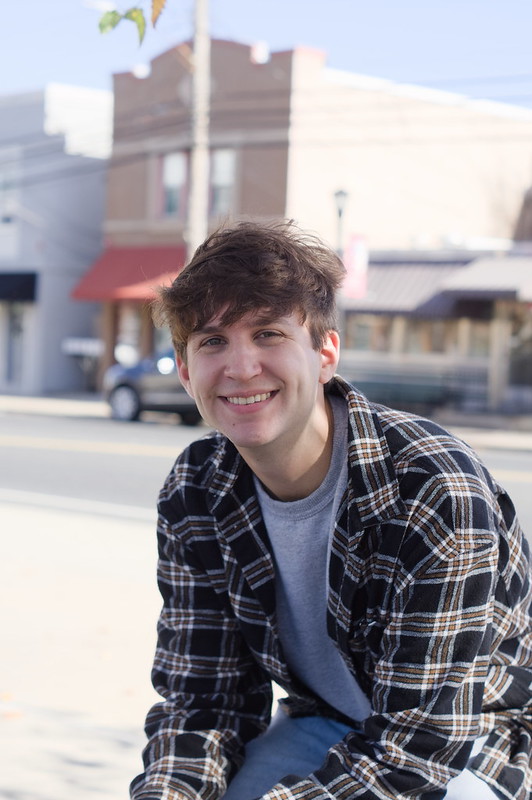
Like what you see?
Story and photos by:
Joseph Conte, junior community and environmental planning major
